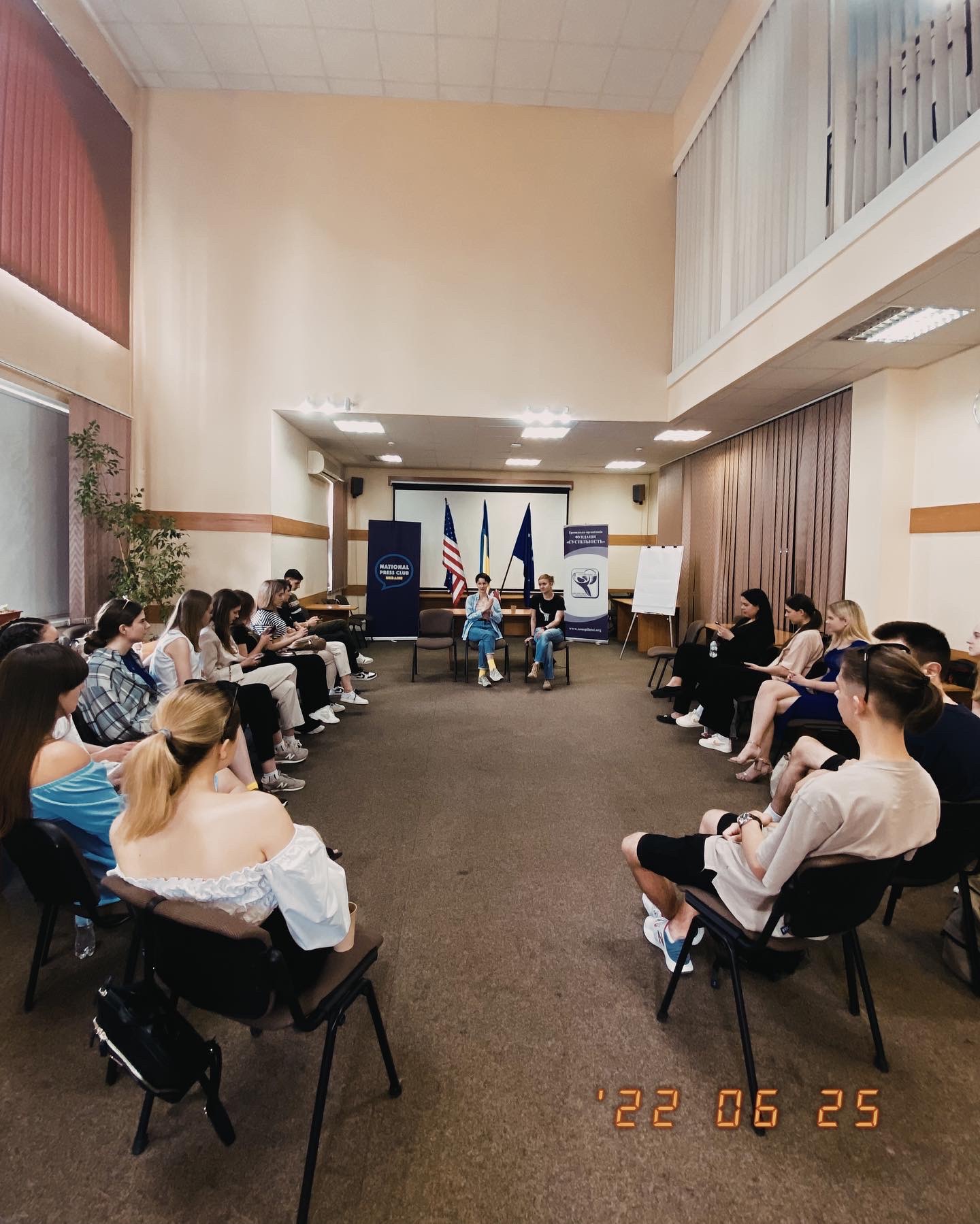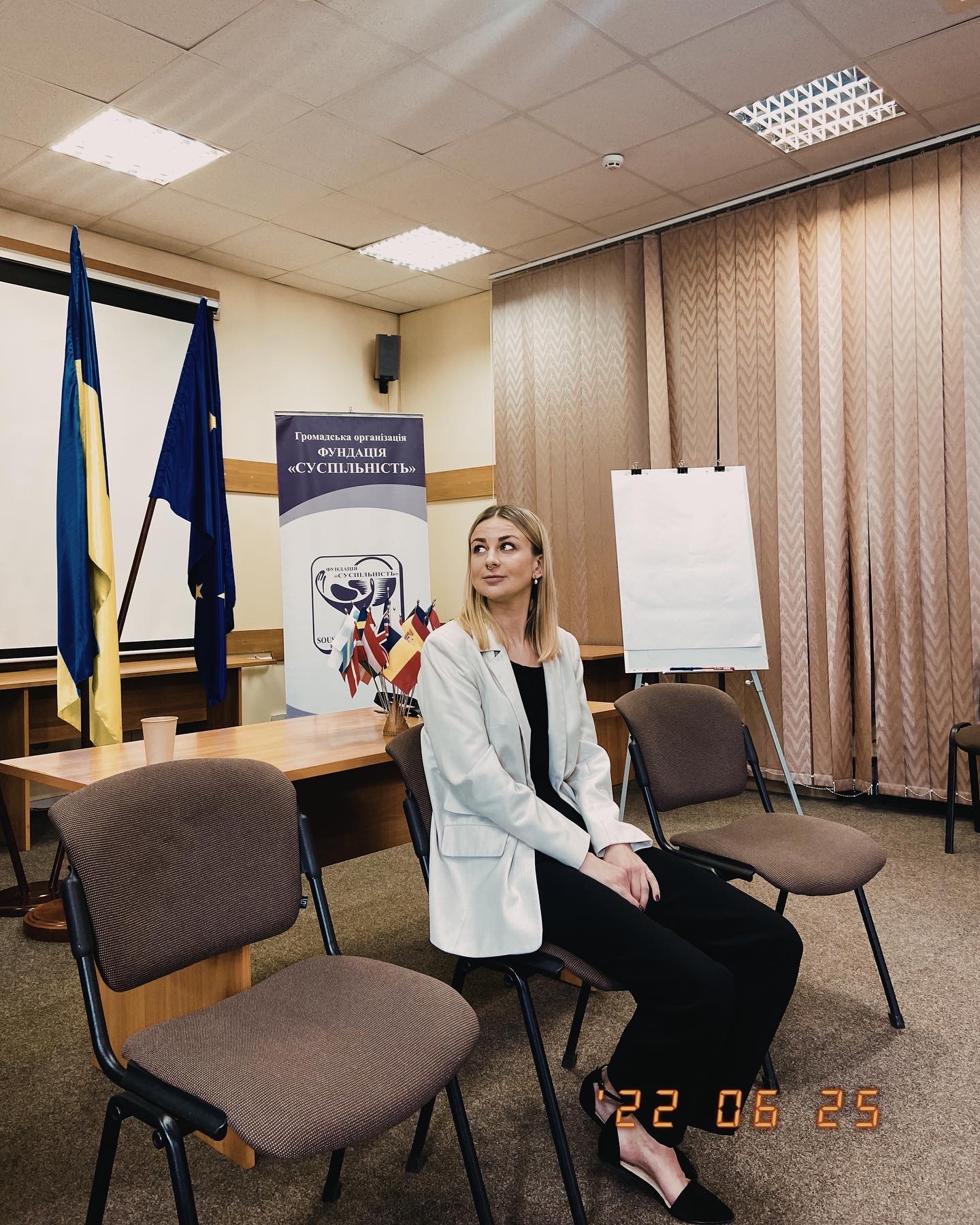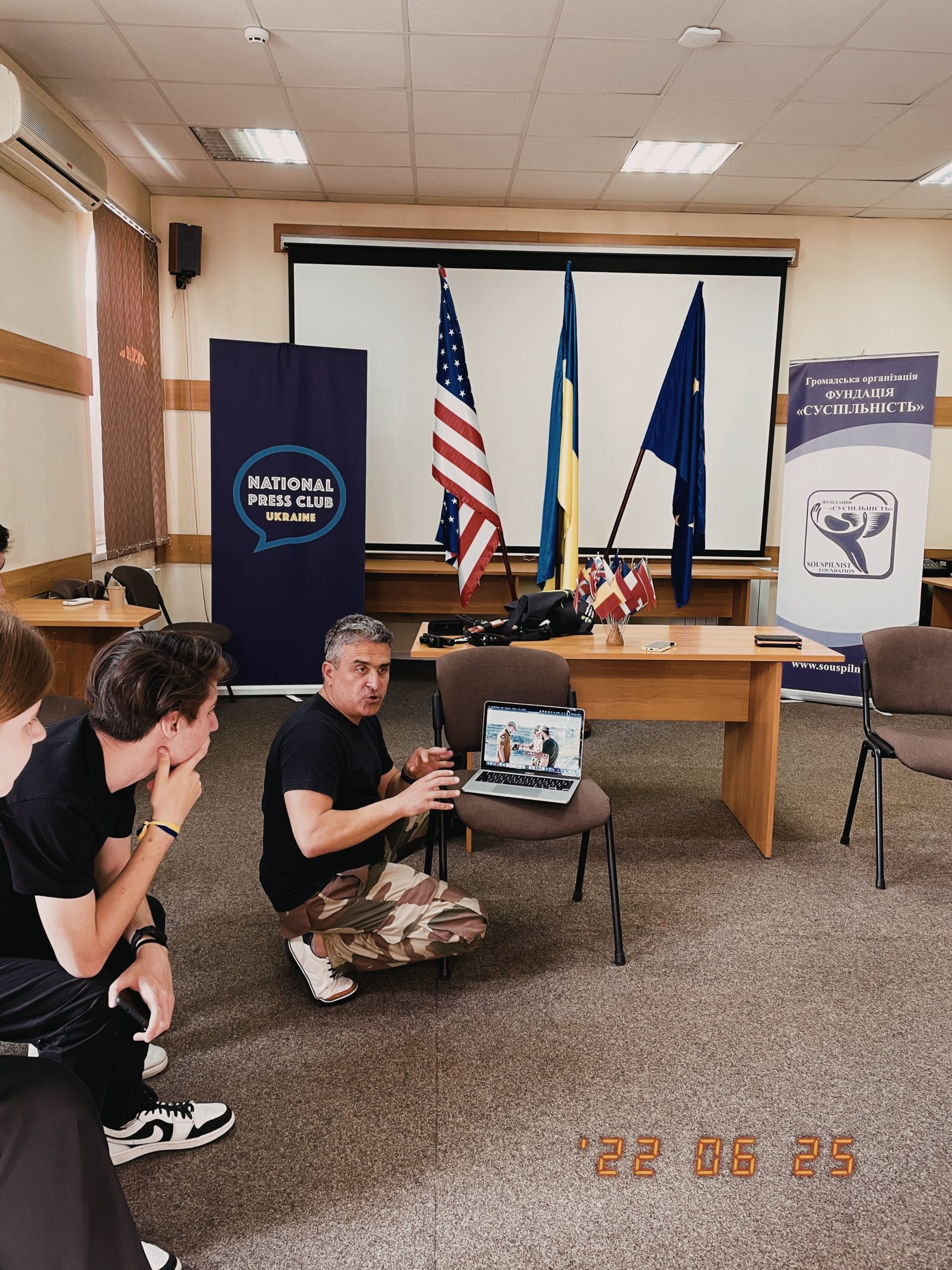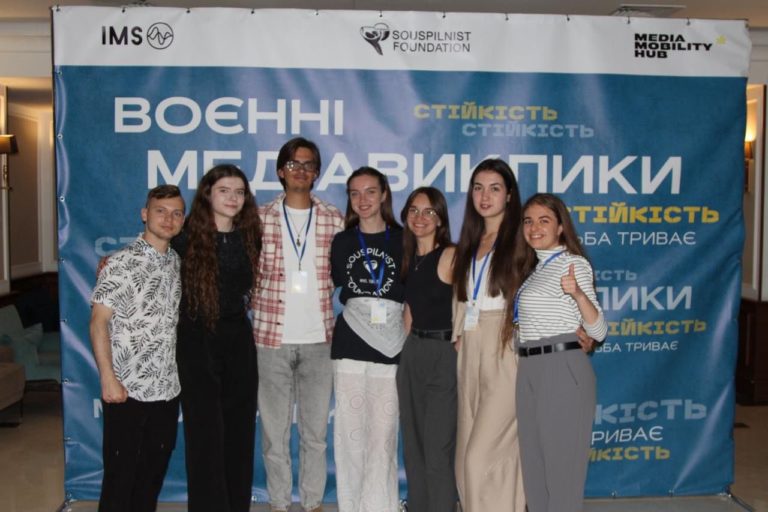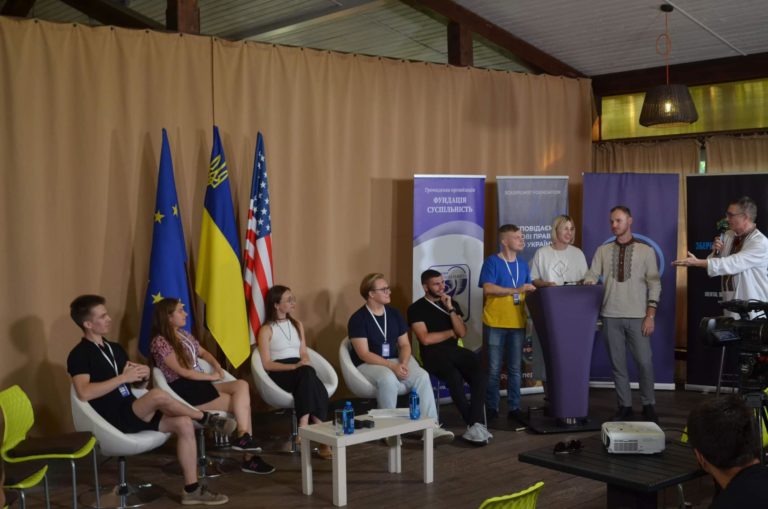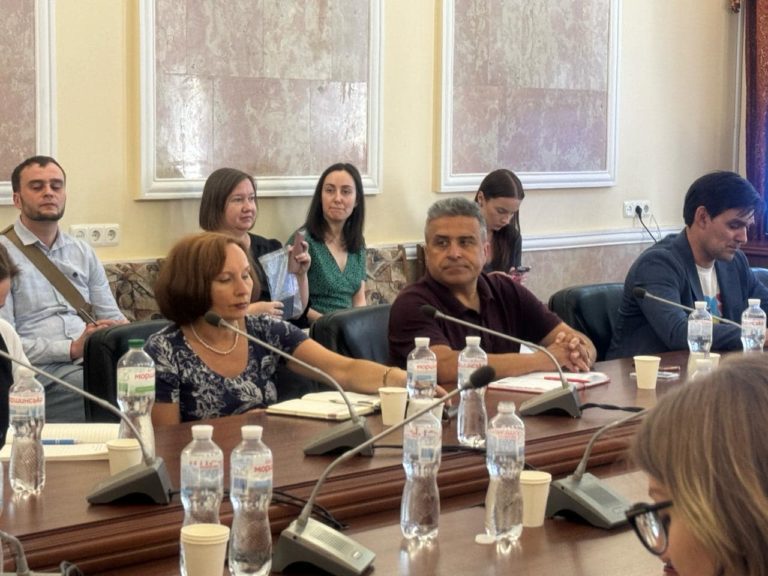Under the Media Mobility Hub in Wartime program, Souspilnist Foundation invites speakers to share their experiences with the students and tell them about the peculiarities of the profession.
On June 25, the editor at Slidstvo.Info, Liubomyra Remazhevska, taught the students to differentiate between facts and opinion, explaining the basics of investigative journalism. She also told the journalists about journalistic sources, their protection, and why it is essential to fact-check information. According to Liubomyra, a fact-checker is someone who questions everything and verifies the accuracy of the material based on documents, calculations, etc.
Journalists must realize this: if you make an error, you should rectify it and inform your audience accordingly. Media outlets correcting their mistakes are always forgiven. You mustn’t be afraid of mistakes, said Liubomyra.
Tetiana Kyselchuk, UA:PBC board member, told the Hub participants about what the Public Broadcaster did after the war broke out and how it continued broadcasting as part of the United News TV marathon. According to Tetiana, she was guided by the principle that “I must broadcast no matter what.” She noted that the percentage of viewers who trust UA:PBC has grown during wartime.
In addition, Tetiana shared her future plans to get younger audiences to watch UA:PBC content.
We must give people the possibility to watch high-quality content, but it’s up to them whether to consume it. As for children, we should grow alongside them. For instance, why do adults watch children’s shows on BBC? Because they grew up with BBC. We don’t have such a history yet, but we’re working to change it. Our first approach last year included cartoons for kids. We’re about to sign a large grant contract that will allow us to purchase and create content for children and adolescents, said Tetiana.
The expert noted: To sound strong in the world, we (UA:PBC) have to sound strong in Ukraine.
Another visiting speaker, Dmytro Tuzov of Radio NV, spoke about journalistic work in combat zones and the liberated territories. He showed the students a kit they would need when working at frontlines: a tourniquet, tactical glasses, a stabilizer, a tripod, solar batteries, a clip, a GoPro camera, and a first aid kit. Dmytro advised that all journalists take a course in tactical medicine because these skills would help both in wartime and in peacetime. He stressed the importance of conducting a high-tech and high-precision war and of using modern, convenient equipment:
Use the camera at hand. Moreover, don’t carry around big cameras. We’re living in a world where it’s totally unnecessary.
Dmytro briefly outlined the situation on the frontlines and finished by showing unique footage from Rubizhne.
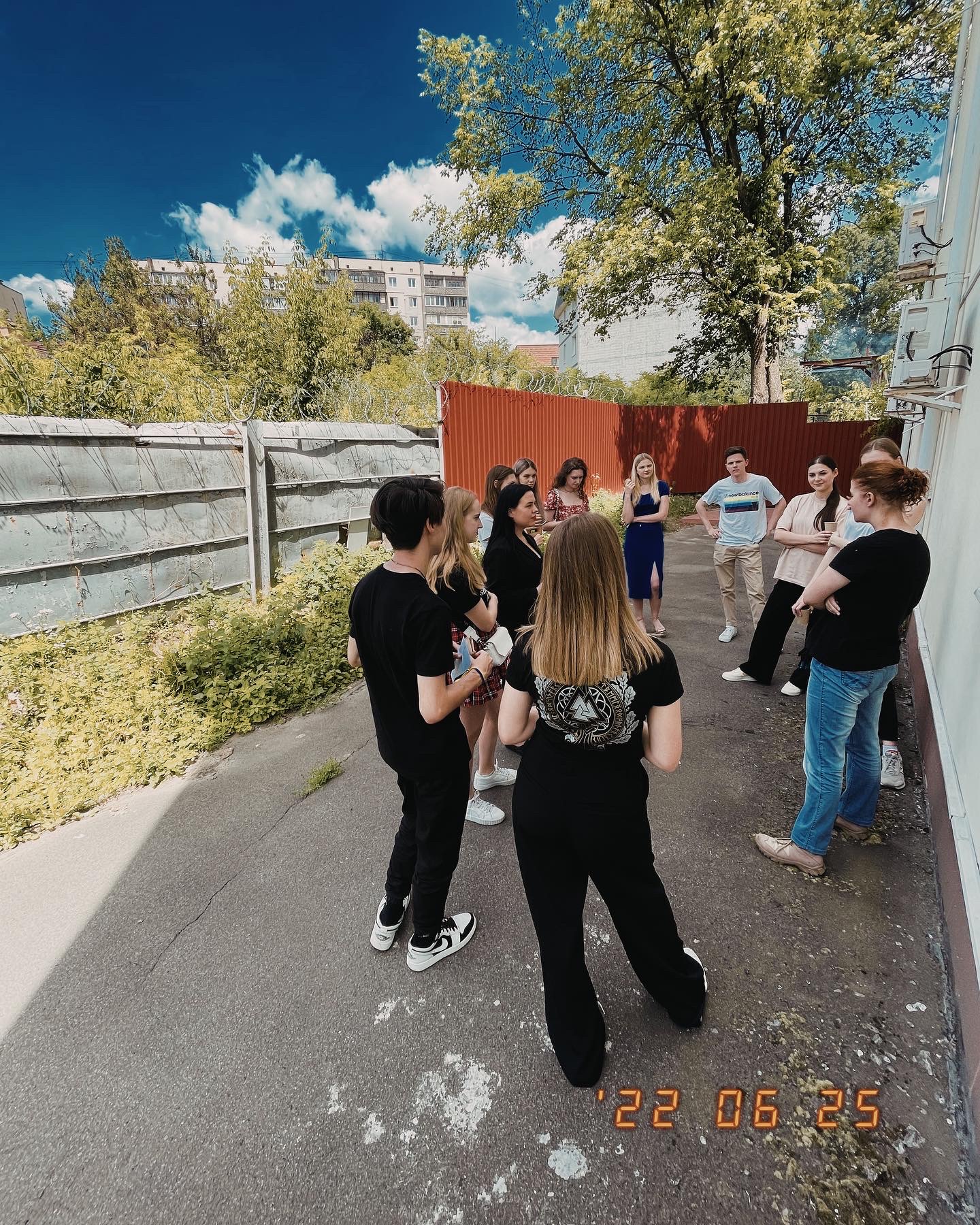
Please be reminded that the Media Mobility Hub in Wartime is a project enabling students from across the country to do a two-week internship at the capital’s leading newsrooms and acquire convergent journalism skills at professional training sessions under wartime conditions.
